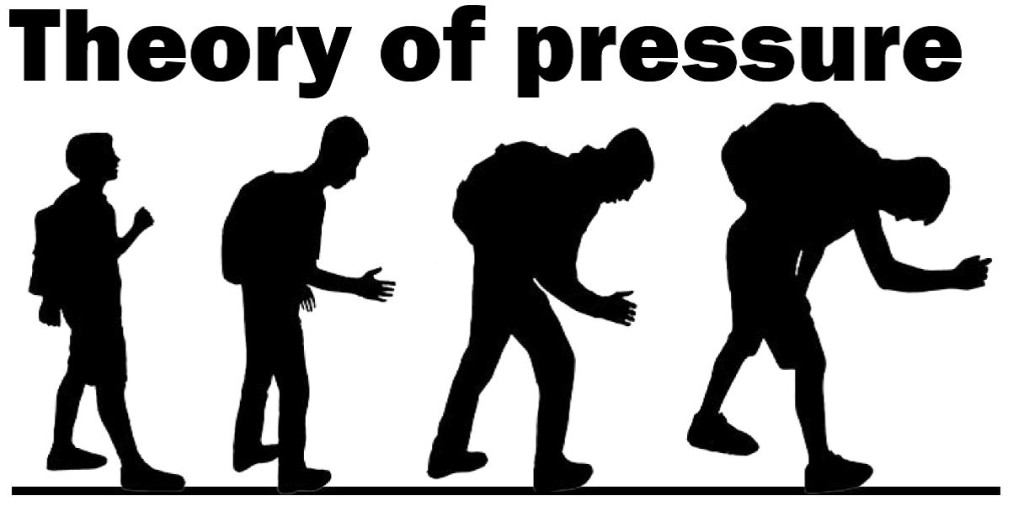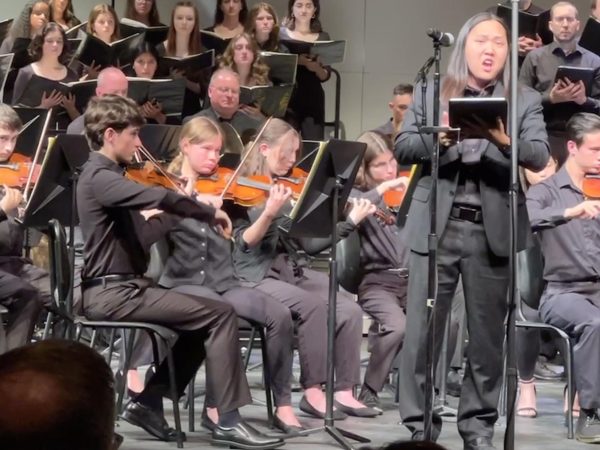Evolution of stress
Students experience variety of stressors throughout high school career
In this day and age, every student is familiar with some stress.
As high school students continue through their academic career, stress levels are heightened and new sources of stress begin to emerge. Seniors typically have more on their plate and consequently more stress, while freshmen have fewer worries. Rather than academic stress, freshmen often begin their high school career with the pressure of a social and a schedule adjustment.
“I was stressed at first because I thought the upperclassmen were going to be meaner to the freshmen,” freshman Leah Moyer said. “But they are pretty nice to us. And I thought I would be stressed about finding classes and getting around the schools, but I am doing pretty well. The most stressful thing is keeping up with activities and after school commitments.”
These worries evolve as students begin their second year of high school. The stress from adapting to the high school environment lessens while academic anxiety grows.
“I don’t face much stress except in my hard classes like Spanish,” sophomore Anas Fain said. “I am trying to keep my grades up for sports, which is kind of stressful. Freshman year was easy.”
In comparison, juniors face the stresses of an intense workload and higher expectations. Junior year, which is notoriously known as the hardest year of high school, leads to the pressure to perform well and take future plans into consideration.
“My classes overwhelm me with the amount of stuff they teach per class,” junior Shannon Meehan said. “The tests are stressful because I feel pressure to do well. I feel this year is so stressful because everyone has always said this is the most important year. There is pressure from parents and colleges to do well and focus.”
While junior year is often seen as the pinnacle of stress, senior year is seen of as a comparatively calmer year.
“I feel stressed about school, especially since I am taking seven IB classes,” senior Greg Blanpied said. “Junior year was worse than senior year, though. It was much more stressful then. This year, the teachers are more relaxed, so it’s easier.”
High amounts of stress following upperclassmen can be traced back to the prospect of college.
“As you start to get closer to junior year, the reality of college and post-graduate plans really start to set in,” assistant principal Chad Lehman said. “Kids start junior year thinking about SAT scores, and keeping grades up. There’s definitely a change in the type of stress. I do sense an increased anxiety level as students get closer to graduation.”
In this age, some members of the faculty have noticed how pressure weighs heavily on students, more so than the pressures they themselves faced during high school.
“I think there has been an increase in the level of stress placed on students,” Lehman said. “From my own personal experience, high school [was] nothing like what students experience now. There was less pressure in high school for me, than there is for you. There is a lot of competition for students to get into certain schools. We didn’t have SOL exams or the same level of testing.”
School social worker Sue Stemetzki agrees that she has seen more students struggle with pressure.
“I have certainly seen an increase in stress [in high schoolers], in a variety of stresses, including pressures in academics.” Stemetzki said. “College prices have skyrocketed. The price is so high it really calls for a game plan.”
Advances in technology and keeping up with those advances, is another form of stress.
“Technology has evolved since I have been in school,” Lehman said. “Ten years ago, students relied on the teacher and the material in class. Now learning is extended throughout the entire day. I think there were certain kids who felt stress 10-15 years ago, but overall my sense is that we are continuing to increase the level of stress on students.”
Exterior pressures from parents, peers, and the community also adversely affect student stress levels. “As a society, especially in the Northern Virginia area where it is very competitive, parents have a high level of education,” Lehman said. “It’s a lot of push, push, push.”
Stemetzki elaborates on the tremendous pressure kids face from their parents and themselves.
“We take some of this a little too seriously,” Stemetzki said. “It is hard to convince parents about stress and their child’s workload. Kids also have too high expectations for themselves. There is that little voice in your head, that internal pressure that can be debilitating.”
Ultimately, students pressure themselves in order to achieve success.
“We all have this external pressure,” school psychologist Dr. Joshua Kefer said. “We all have an internal definition of success.”











